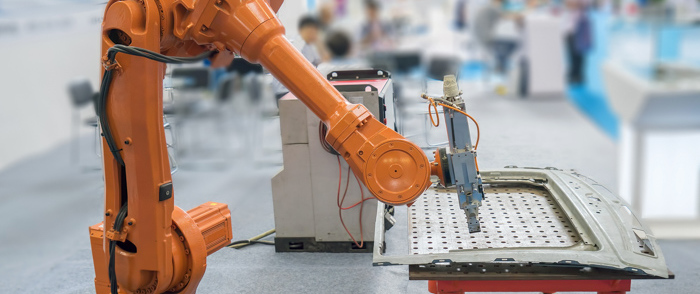Man vs. Machine: Is Automation Stealing Jobs?

This article was updated on July 25, 2018.
Although it has accelerated of late, the fear of automation stealing jobs is centuries old. Recall the legendary 19th century folktale of John Henry, the strongest steel-driving man who ever wielded a hammer. One day the railroad turned to automation, using a steam-powered drill that outworked any man. Although John Henry tried to outwork the machine, he famously died trying.
In a more contemporary "man v. machine" story, chess master Garry Kasparaov defeated IBM's Deep Blue in a 1996 chess match, only to lose against the "thinking machine" the following year. Notice that in both stories, the machines ultimately came out on top.
Automation holds the potential to greatly reduce costs and perform an increasing array of activities, from factory production to tax audits, with high speed, consistency and quality. The fear of automation stealing jobs, both labor-intensive, blue-collar factory jobs and (increasingly) white-collar office jobs, is therefore quite justified, especially for jobs that require repetitive actions or limited creativity. As The Atlantic points out, automation doesn't kill jobs, it shifts them: "While computers create jobs in some occupations, they also reduce employment in others. The total effect on unemployment depends on which tendency is stronger."
A Shift to Automation
The pure number is dizzying, from software testing to airline piloting to teaching. Keep in mind that it won't be whole jobs that get automated but activities, especially those prone to repetition. According to McKinsey & Company, "As many as 45 percent of the activities individuals are paid to perform can be automated by adapting currently demonstrated technologies. In the United States, these activities represent about $2 trillion in annual wages."
Even in China, long associated with low-cost labor, organizations are moving toward more automation. According to TechRepublic, one Chinese organization "has automated production lines that use robotic arms to produce parts for cell phones. The factory also has automated machining equipment, autonomous transport trucks, and other automated equipment in the warehouse. There are still people working at the factory, though...workers check and monitor each production line and there are other employees who monitor a computer control system."
A Redefinition of Vocational Purpose
According to the ADP Research Institute® report, The Evolution of Work: The Changing Nature of the Global Workplace, 94 percent of employees think automation will replace people for repetitive work. But even though routine and repetitive tasks are progressively shifting to automation, humans are still crucial in the process to resolve exceptions that get flagged by automation and make final decisions. For example, automated recruiting systems can search and scan for "must-have" candidate skills and automatically exclude those who lack them. HR professionals then review those who passed the automated screening and decide who to interview from a superior and smaller pool of candidates.
Big data analytics might also be leveraged to uncover success factors for the position by aggregating all the characteristics of high-performing employees in the role. According to Forbes, these "talent analytics" could also help guide your firm toward the best candidates. The cost and time savings associated with using automation are clear, and the quality of the process never gets lost. Blending automation and humans in a way that optimizes the strengths of both is clearly the best way forward.
Impact of Automation on Higher-Paying Jobs?
Humans will focus more time on creative activities and less time on routine, repetitive work that automation does well. Think of the repetitive nature of software testing, where automation excels, leaving the detected bugs for human testers to fix. Even the C-suite will need to shift focus, according to McKinsey & Company: "We estimate that activities consuming more than 20 percent of a CEO's working time could be automated using current technologies. These include analyzing reports and data to inform operational decisions, preparing staff assignments, and reviewing status reports." Humans will still need to fill the gaps where software or automation is less effective.
Will Automation Evolve to Include Aspects of Creativity?
Fortunately, at least for now, the answer is no. Engaging employees, for example, takes empathy and a profound emotional understanding of diverse psychological terrain such as intrinsic motivation and how humans construct meaning (often via stories), according to Fortune. Automated tools, although quite advanced, aren't ready to topple humans from performing deeply human tasks like creating, engaging and storytelling. Would you send a robot to apologize to your biggest customer after a low-quality delivery? Not if you wanted to keep that customer.
Despite the continued rise in automation, human talent has never been more important. You can use technology to streamline your recruiting, but human expertise and business savvy are still critical to determine whether the person, and not just their skill set, will be a good fit for the organization. Therefore, it seems clear that a commingling of automation and human insight will ultimately be the key to sustained business success.



